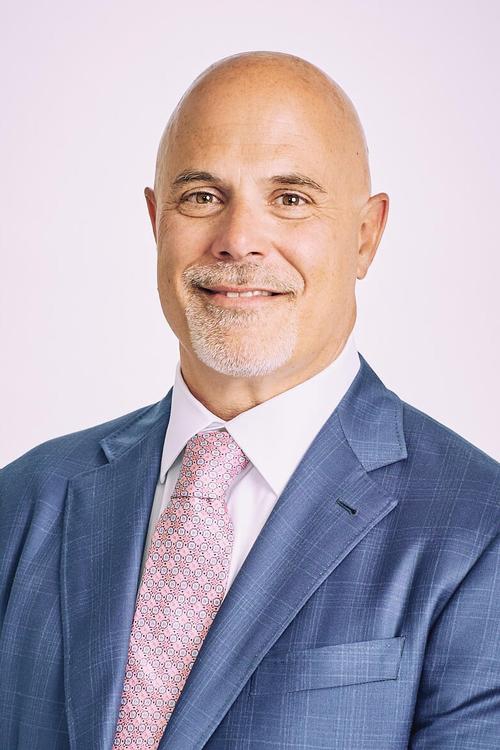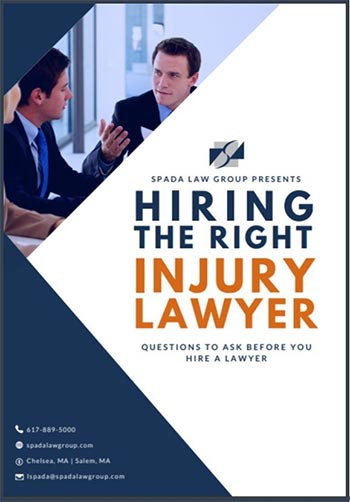
Cycling is very popular in Massachusetts and continues to grow as a mode of urban commuting, transportation, and recreation in the Boston metro area and statewide.
Due to its popularity, Massachusetts continues to invest in bike infrastructure and events. Massachusetts is known for its extensive cycling infrastructure, including designated bike lanes and shared paths, making it easier and safer for commuters and recreational cyclists to get around.
While cycling has always been popular, in recent years, COVID, rising gas prices, and other factors have led to an explosion of interest in cycling in Massachusetts. Recent data suggests that cycling is particularly gaining popularity in the suburbs and smaller towns in Massachusetts. There has been an increase in recreational biking, longer bike rides, and taking advantage of bike-share systems such as Bluebikes.
An increase in casual cyclists also means an increase in less experienced cyclists, which can be dangerous.
This blog contains tips on how to work together to keep everyone safe. Even as a motorist, you may be driving today, but tomorrow or in the near future, you may be riding a bicycle.
Bike Sales Through The Roof In Massachusetts
The pandemic brought on a bike boom, with bike sales the highest they had been since the 2008 recession, according to Western Mass News. Local bike shops in Massachusetts noticed a dramatic increase in demand for bikes. It was a perfect storm of COVID, with people looking for more ways to be outdoors, exercise, alternatives to public transportation, and increased gas prices that led bike sales to go through the roof.
The surge in bike sales also included an increased demand for electric bikes, also known as e-bikes. A bike shop owner said he usually sells 30 e-bikes over a calendar year but sold 30 e-bikes in just three months during the boom.
Bike sales in Massachusetts have remained relatively strong since the pandemic surge in 2020, which caused some supply shortages. Now, while the demand for bikes has continued to grow, the sales have stabilized and remain robust, especially for e-bikes and hybrid models. Cycling continues to be a growing area of interest as people shift toward more eco-friendly transportation and are looking for more outdoor activities.
BlueBike Bike-Share Stations Largest Increase In Riders Was Outside of Downtown Boston
Bluebikes have continued to increase in popularity ever since their debut in 2011. In 2023, Bluebikes had their most popular year yet, with 26,883 annual members. Annual membership has increased every year, starting at 3,203 in 2011. At the end of 2023, there were 480 BlueBike stations, a significant increase from the first 61 stations.
According to data collected in 2019 and 2020, Bluebike stations observed the most significant increase in ridership at bike stations outside Boston’s downtown center.

As the father of a Boston University Sophomore, some of the most concerning increases in BlueBike rentals are the increased use around BU. The Commonwealth Avenue station in Allston at Griggs St. and the 700 Commonwealth Ave. station on BU’s campus saw a tremendous increase in riders. The station in Allston, where many students live off-campus, saw a 2,329% increase in ridership in one year. The central BU campus stop at 700 Commonwealth Ave. also saw a more than 350% rise.
I know that my 20-year-old daughter rides Bluebikes around campus. As a cyclist myself and a personal injury attorney who represents people injured in bike accidents, this is something I lose sleep over.
I am always encouraged when more people pick up biking. However, increased use of bike-sharing and Bluebikes also means an increase in the number of novice riders and riders not wearing helmets. Many Boston University students will rent Bluebikes from Allston and ride them without helmets into the central campus bike share station. Students will do this to get to class or even to get home late at night, which is especially dangerous if you don’t have the proper gear or clothes to help cars see you at night.
Popular Cycling Cities in Massachusetts
In addition to cycling’s popularity in Boston, cycling is popular throughout the state.
Cambridge is a highly ranked bike-friendly city known for its cycling safety measures and infrastructure improvements. In 2019, the city passed a Cycling Safety Ordinance mandating the creation of protected bike lanes, aiming to complete a 25-mile network of routes by 2026.
Another cycling hotspot is Provincetown in Cape Cod, known for its coastal paths and scenic routes. Provincetown is consistently ranked among the best small cities for biking in the U.S.
What Can Drivers And Motorists Do To Make Cyclists Safer On The Roads?
New cyclists require increased awareness for drivers and cyclists. One of the most important things that drivers and motorists can do to help keep cyclists safe is to LOOK for them, not just “notice” them.
1. Stay Alert and watch for Bicyclists
As drivers, we can’t just see cyclists. We need to actively LOOK for cyclists. Lack of visibility is one of the most common causes of bike accidents in Massachusetts. Cyclists can help reduce the risk by wearing neon colors and ensuring they have all the proper lights on the front and back of their bikes. Drivers can help reduce the risk of a tragedy by genuinely looking for and anticipating cyclists.
The increase of less experienced bicyclists on the roads means drivers must be even more careful. With the growth of cycling in suburban and small-town areas, drivers who aren’t typically used to sharing the roads with cyclists will need to learn to be more accommodating.
2. Be Cautious at Intersections
Many bike and car collisions happen at intersections, making intersections one of the most critical places for drivers to look for cyclists actively. Drivers turning right can help by making an extra effort to look left before turning and approaching the intersection very slowly to ensure they can see beyond any street parked cars on the left. Drivers turning left across an intersection often only focus on ensuring the traffic lanes are free from vehicles and forget to check for oncoming cyclists in the far left lane who are also about to enter the intersection.
3. Always Use Signals & Check Your Blindspots
Other simple ways drivers can help keep cyclists safe include always using appropriate traffic signals so bikers know their next move. It is also very important to take special care when turning right across a bike lane or crossing a bike lane to parallel park. When turning or merging, it is very easy for cyclists to disappear into your car’s blind spots, especially if a cyclist is riding alongside you.
After street parking, always be careful to check before opening any driver-side doors so you don’t open your door right in front of a cyclist and cause a crash.
4. Give Bicyclists Plenty of Room
It’s critical to give bicyclists enough space when passing riders. In Massachusetts, you must provide at least three feet of clearance. This space helps protect cyclists from being sideswiped or pushed off the road.
5. Slow Down
Slowing down increases the amount of time you have to react if a cyclist suddenly enters the road or swerves to avoid obstacles. In urban areas or places with designated bike lanes, maintaining a slower speed helps ensure everyone’s safety.
6. Focus on the Road & Avoid Distractions
One of the leading causes of accidents for vehicles and bicycles is distracted driving. Keep your attention on the road, and avoid distractions such as texting, eating, or adjusting in-car systems while driving.
If You Do Hit A Cyclist With Your Car, Here Is What You Need To Do
While we hope the tips here help you avoid becoming a defendant in a personal injury case involving a cyclist, we also want you to know what to do if you’re ever involved in a collision with a cyclist as a driver.
Here is what you need to do immediately if you are involved in a crash with a cyclist:
-
Check on the Cyclist: Pull over safely and check on the cyclist. Call 9-1-1 immediately if injuries appear serious.
-
Call the Police: Even if the cyclist seems to be uninjured, you should still call the police so they can come out and file a police report on the incident and check on the cyclist themselves.
-
Mandatory Accident Reporting: Massachusetts law requires you to submit an accident report for any motor vehicle accident that results in an injury or property damage exceeding $100 within five days of the accident. The easiest way to comply with this requirement is to call the police to the accident scene so they can make a report.
-
Exchange information: Cyclists aren’t required to have insurance in Massachusetts, but some may. Exchanging information is more so that the cyclist has your information. If they’re injured, they will likely file a claim against your car insurance company to cover their medical bills, bike repairs or replacements, etc.
-
Gather Evidence: Take photos of any damage to your car and the bike. Take notes of what happened, the date, time, the street you are on, and any weather conditions or other factors contributing to the incident. If anyone around saw the accident and stayed on the scene, you can also ask for their contact information and what they saw.
Injured On A Bike In Massachusetts? Our Chelsea And Peabody Bike Accident Attorneys Offer FREE Consultations
As cyclists ourselves, we know the joy that cycling brings. But as injury attorneys, we also know about the dangers of cycling in Boston and beyond with less-than-friendly Massachusetts drivers.
If you were injured in a bicycle or e-bike accident, Spada Law Group’s injury attorneys can work to protect your legal rights. We have three offices but proudly serve the entire state with the ability to meet with you remotely from the comfort of your own home. Contact us for a free consultation so we can learn more about your bike or e-bike injury case and see how we can help you get the recovery you deserve after your accident.



